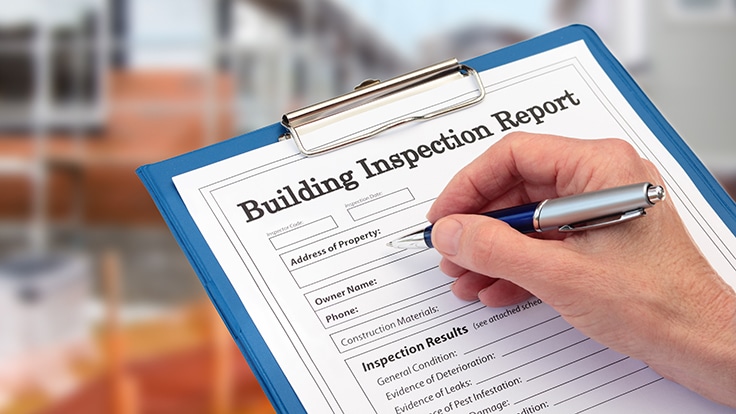Essential Building Inspection Checklist for Investment Property Buyers

Purchasing an investment property is a very exciting process, which is also associated with risks. A house might appear to be the most appropriate one, but unseen flaws in the construction, infestation of pests, or legal complications may make your investment a liability. That is why an in-depth building examination, with a recommendation of a property lawyer, is necessary before the purchase.
A qualified building inspector provides a detailed report showing the actual state of the property. Whether it is electric power or pest management, all aspects count in ensuring a safe and profitable investment.
Why a Detailed Building Inspection Is Important?
A building inspector examines the property’s physical condition to identify current and potential issues. It assists the investors in determining the problem that exists or could arise before settlement. Such problems, when neglected, may cause unforeseen repairs and losses in the future.
However, early identification will enable you to bargain the price, get repairs, or even get out of a dangerous deal.
Besides this, there is also the importance of legal clarity. A property lawyer will also make sure that there are no legal surprises, non-compliant work, or contract pitfalls that may alter ownership.
Key Areas to Inspect in an Investment Property
1. Structural Integrity
Any property has a structure as its backbone. Wall cracks, sloping floors or imbalanced foundations may be symptoms of serious structural issues. Check the walls, ceilings, beams and support posts to see if they are moving or broken. Large cracks or bulges can be an indication of expensive fixing.
2. Roof and Exterior
A broken roof may result in water leakages and mould. Look at tiles, rusted gutters, bad drainage, or weak spots on the roof. There are exterior walls that need to be checked for cracks, flaking paint or moisture. Any damage to the water may undermine the whole structure.
3. Plumbing Systems
Poor plumbing causes leakages, mould and costly maintenance. Check bathrooms, kitchens, and outdoor taps, and look at the water stains, slow drains, loose pipes, and wet spots. Any long-term damage can take place in the hidden leaks under the floors.
4. Electrical Systems
The problem with old or improper wiring is that it is dangerous for fire. Check all switches and power points, fuse boxes, and safety switches with a licensed electrician. Ensure that the wiring is in line with the existing safety standards. Flickering lights, short circuits or bare wires are indications.
5. Interior Rooms
Check every room thoroughly. Ceilings, floors, check doors and windows. Flaking paint, cracks, damp smells, or swollen timber could be indicative of moisture issues. Test ventilation and check bathrooms and kitchens.
6. Subfloor and Foundation
Major problems are often concealed in the subfloor area. The structure can be weakened by poor ventilation, dampness, or rotten joists. Check the presence of standing water, termite mud tubes, or broken supports.
Pest Damage and Termite Activity
Also, serious factors that affect the value of an investment property are pest problems, particularly termites. A professional team of pest control services ought to survey the premises for termite tunnels, rotting wood, or droppings.
Hiding spots of timber that are usually affected by termites include roof spaces, skirting boards or subfloors. The treatment should start early to avoid the costly structural repairs.
Legal Safety: Role of a Property Lawyer
A property lawyer is important in your investment. They are thorough in the inspection of the contract of sale, checking property titles, and checking whether there are any disputes and unpaid charges in the background. They also ensure that all building works and renovations are in the right council approvals and legal approval.
In case any section of the property is not approved, there can be a problem with insurance or resale value in the future. Special conditions are also negotiated by a property lawyer who checks the disclosures and makes sure that you understand your legal rights. With their assistance, you do not get into unforeseen legal issues and purchase with certainty and ease.
Documenting Inspection Findings
During your building inspection, it is vital to record everything properly. Take photos, make notes, and collect reports from professionals. This documentation helps you evaluate repair costs and decide whether to proceed, negotiate, or withdraw.
Tips for Documentation:
- Write down all visible issues
- Capture photos of cracks, stains, pests, or damage
- Keep all inspection and pest reports together
- Request quotes for major repairs
Proper records strengthen your position when negotiating with the seller.
Choosing a Qualified Building Inspector
Hiring a skilled building inspector is crucial for a reliable and unbiased condition report:
- Credentials and experience – Choose licensed professionals
- Knowledge of local building standards
- Detailed reporting style – Visual evidence and clear explanations
- Independent and unbiased opinions
A qualified building inspector often provides combined building and pest assessments for a full property evaluation.
Conclusion
Even a property that looks great can possess some vexed issues. A full building verification, an electrician’s check, and advice from a property lawyer will make sure you are making a safe and lucrative investment decision.
By taking the time to investigate and understand the real situation of the property, you are in control of your investment. Timely action avoids unexpected expenses and assists in achieving long-term returns. When it comes to property investment, it is always better to be careful to save thousands tomorrow.
FAQs
Why is a building inspection important for investment properties?
It identifies structural, electrical, or pest issues early, helping investors make informed and secure purchase decisions.
What does a professional building inspection include?
It covers structural integrity, plumbing, electrical systems, roofing, and potential pest or termite damage assessments.
How can pest control services protect property value?
Regular pest control prevents termite damage and infestations, maintaining the property’s structural integrity and resale value.
Why should a licensed electrician inspect investment properties?
A licensed electrician ensures wiring safety, identifies fire risks, and confirms compliance with Australian electrical standards.
What role does a property lawyer play in property purchases?
A property lawyer reviews contracts, checks approvals, and safeguards buyers from legal disputes or ownership complications.





